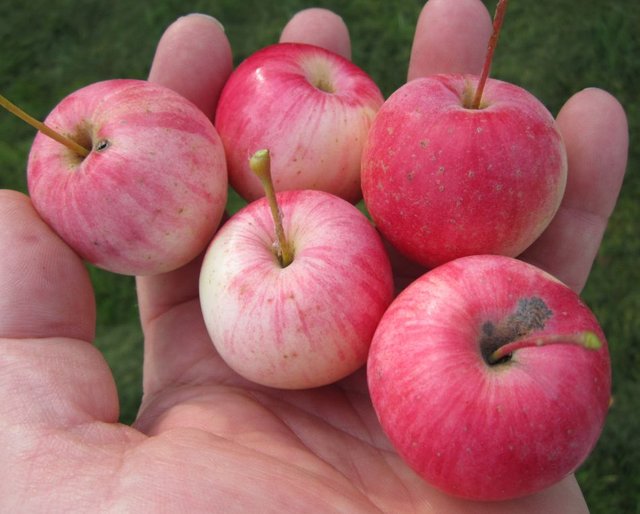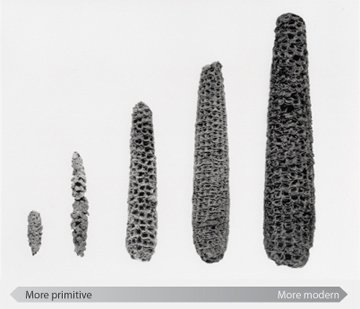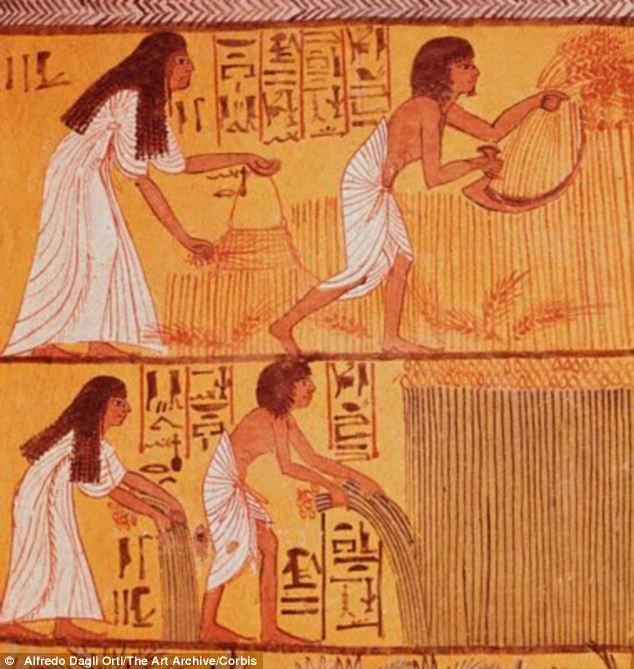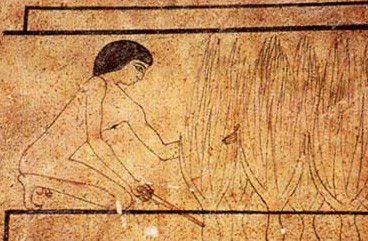DIY Transgenics (GMOs)
This is the article 1 out of 65536 that should be written to sense-fully start speaking and debating about this topic. There's also one needed listing the repercussions (or not) of transgenics over health and environment, or of how a major usage (or most known) of this technology is focused in up-keeping productivity and efficiency of an economical model based in agronomy (along with all that it implies). Another article is needed, one that speaks about how transgenics are used in things that have nothing to do with agronomy, as in insulin production or soap enzymes that allow you to use less water to wash your dirty socks. We should also make an article about how absurd it is to "copyright" sequenced genomes, being a species that should thank its success to the capability of sharing knowledge into the collective mind we are. But, to reach that kind of conversation, people need to know exactly what are they talking about when they say "GMO".
To understand, or at least grasp the basic politic, scientific, economic, technic, social knitting (basically, human) that weaves around an idea, even when it's a simple idea; put it this way "lets grab a piece of genetic material from this critter and place it into this other critter".
To start building any argument we need to know what on earth is a transgenic (or, with branding, a GMO). WE wont rant about the wide notion of "modified". It is clear all living creatures are modified. By chance, by evolution, by the environment or, the combination of all of them along with a lot more that I'm not listing. In this case, lets name "GMO" to any organism that we modify using modern genetic manipulation techniques (lets clarify, because breeding the two cutest dogs is also genetic manipulation, and the fact that you can eat fist sized apples is because of genetic manipulation, not by the grace and will of holy Spiderman).

Non-GMO apples (they are kind of acid, aside from the rather small size)
Something really interesting, once we reach this point, is that the basic definition of OGM implies exactly what you're doing. In this case, we suppose you're taking a piece of DNA from an organism and paste it into another one (this is transgenesis, if you paste it back, but somewhere else into the same organism it's cisgenesis, really). This is no minor topic, because boiling a potato is not the only way to cook it and to accurately manipulate the genetic data of a critter (or at least try) is not the only way of generating new traits into organisms. Here's when the thing gets legally treacherous and fanatic of looking for exceptions to the rule: it looks like grabbing a bunch of seeds, expose them to X-rays, let the rays force their genomes mutate totally randomly, planting it and looking what happens is not a GMO; it has different legal regulations, but lets just keep that data as a side note.

Non-GMO corn (I'm sure one is more than enough per person)
But we should not get into eight rabbit holes at the same time, lets go back to the first one: how do I edit an organism? Basically, emulate nature, nature plays with genes ALL THE TIME.
At a point we defined "gene" as: the piece of DNA that codes to form a protein". This definition was really good because it was just a matter of assigning a counterpart to each fragment able to interact with its environment, that's what proteins do: MAKE and SHAPE. Proteins are the brick of living buildings, but at the same time they are the tools that are used so that the bricks may build more complex lifeforms. The problem is, as any human definition, it is limited and it turns out that there's a lot of DNA that never makes it into "protein" but that does everything, regulating other genes' expression or moving information among different parts of the critter, or even convert into some other kind of genetic material that bends in space to shape a whole different cellular machinery. So, to define "gene" in a way so bound to its protein translation, is "aiming low". Yes, it IS a problem, but at the same time it shows us how much molecular biology has advanced. We had to redefine the meaning of their founding words. So much did the idea of "gene" change that the option today is really pragmatic and useful, it defines "gene" as a piece of genetic material that contains information that eventually converts into an action (accuracy bonus: -25), the definition is vague, blame the international congresses that gather thousands of scientists that still haven't been able to find a more accurate definition.

What we know today as a banana is a GMO of this little thing
(today, it lacks of useful seeds, to so the method of planting is using a rhizome)
Does this mean that as we genetically manipulate an organism we manipulate its genes? Not always, because there's a bunch of other pieces of DNA that we can play with while totally changing the organism, they are not genes, the work OVER the genes, regulating "how much", "when" or "if". A GMO could exist with all its genes untouched, but with other things touched, that we do not define as genes, yet they translate into information that result into actions. Again, definitions, and knowing that lawyers and biologists still have a LOT to talk about.
We are a step closer of understanding what is to modify a gene (or a not-gene, equally important), now we face the "how". Genetic modifications imply a series of assorted flavors. We can add, remove and/or change parts of genetic material. These processes of genetic information manipulation are such a novelty, we can see them happen at all living creatures, at a moment or another, since the birth of life itself, with the only difference that we can talk about it before doing it.
Genetic manipulation is so old, that one of the tools we use is living organisms (mostly bacteria), or "almost" living (virii).
Other methods imply, roughly describing, to shoot particles of gold covered in DNA against a cell and pray (or at least close your fist tight and wait) that this genetic material will integrate in the organism we want to mutate. The first experiment of this method (bioballistics) was done with a 22 cal. nail gun, modified to shoot gold micro-pellets. A NAIL GUN, home depot is a vital part.

Ancient wheat used to be much taller (using more water to grow),
today it rarely is taller than a man.
But shooting DNA is not the only strategy, sometimes the aim is easier when the bullet is smaller, those critters that promiscuously share their DNA with others. At the bacterial happy hour is when we can use chemical methods to entangle their genes. Just like the teenage mutant ninja turtles, with no turtles, no ninjas, no Splinter, no sewers, no undetermined green goo and; utterly important, no Megan Fox.
The third option is the biologic one, elegant, because it means using an organism that normally modifies genes in others. A parasite able of sneaking behind enemy lines and alter the host in his own benefit.
There's a lot of this ones, a classic, virii that integrates into the target's genome, or Agrobacterium tumefaciens, a bacteria that modifies vegetal genes encoding hormones that forces the plant to supply it food, a hacker organism. Yes, it scams the host into feeding it. Just like you, over 30 years old, dwelling the same bedroom you lived at your childhood. Blame it into evolution. We aren't the first, there was vegetal transgenesis before humankind existed.

Onions, also had a similar change; they used to be taller (using more water to grow).
Our genetic manipulation career starts in the 70s, Paul Berg creating a whole new field in science: genetic engineering. Is this so different from Peter, the Egyptian of historically questionable name that during the Neolithic Revolution chose the two largest corn plants and crossed them? Yes, I am overdoing it a bit, mainly, because there were no corn at the whole continent. But it's not so different, now we just got better at recognizing the "largest plant", the properties we want to exploit and how, and most important: now we can even pick different plants to pass properties like "disease immunity" across species. Peter, our hypothetical Egyptian, mixed information from two close sources and created descendants. He did it based on luck and chose the combinations that better suited his needs to produce what he wanted to produce, just as we do today.
Is it different? Hardly. Is it dangerous? Yes, but using a car also is, also eating certain foods. Is is inherently destructive? and we should keep it locked down in a subterranean vault to never speak about this topic again? No, we had that chance with Justin Bieber; and we still let him roam free.
What I mean with this is. people try to reduce the argument into a "yes or no", establishing a false dichotomy, there's no way of absolutely rejecting or accepting anything (Greenpeace is a great example, they use computers, that are manufactured by polluting land, air and water). Historically speaking blindly being against or in favor of something never ends good... Lets inform people first.
Once upon a time, humankind needed the Agrarian Revolution to stop being nomadic and start building cities, talk to other people, and spend more time inventing new cool stuff, singing songs and looking at the stars. A few years ago, a new Agrarian revolution was needed to keep humankind fed..
Are these pristine steps? No, but I just wanted to use the word (what a beautiful word, pristine).
Are they absent of humongous economic interests? Not by the smallest chance. But, to face this OTHER issue; we first need to face this from the base. Judge advantages and disadvantages with a fully informed insight. Always taking the context into consideration.
You are right, there is a lot to be discussed about GMO's and ways that they are used. You could make a pretty interesting post just talking about Tide laundry detergent and the various enzymes they add to it.
http://www.hindawi.com/journals/archaea/2015/147671/
Many of those enzymes come from Archaea, which is an extremely interesting branch of life due to the crazy conditions that the organisms often thrive in.
I'm happy to see, that someone starts to talk about GMO here on Steemit, and fortunately in scientific (even if it's pop-science), not hysterical way.
I really appreciate you trying to make people to understand.
Since we're all came from one very first live cell and still constantly changing, better to accept the thing, that there is no difference if this change happens in a nature - occasionally, or in a lab - purposefully.
Keep it pop, otherwise, how can one inform to people what "cisgesis" is?
Upvoted for high quality original content.
Well, thank you siren. 2 minutes to read over 1000 words, you sure are a speed-reader.
Upvote for making me chuckle.
Thanks a lot for these pieces of information that are very clear from the point of view of someone not working into this field. And I like your objective way of giving the information.
nice :)